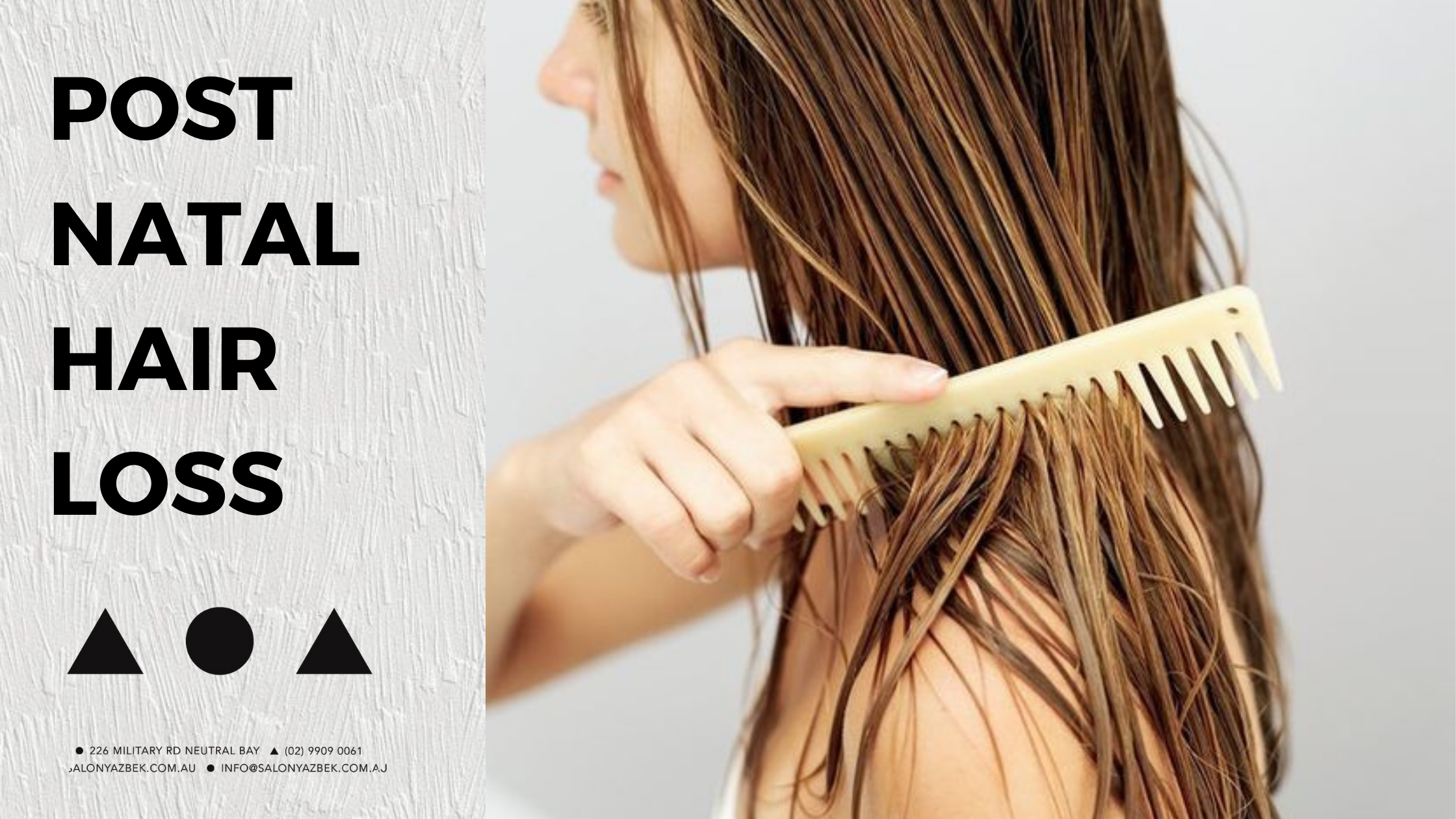Postnatal Hair loss
Following childbirth, many women experience a significant increase in hair loss known as postpartum shedding. It may be noticeable in your hairbrush and hands when touching your hair, or even in the overall feel and look of your hair’s volume. Distressing as it can be, know that it is normal – and there are things you can do to minimise the effects, as two top trichologists explain below.
Causes of postnatal hair loss
On average we all shed between 50 to 100 hairs a day – we just don’t really notice. In pregnancy this number is less due to rising oestrogen levels. As trichologist Anabel Kingsley tells Bazaar, “this keeps hairs in the anagen (growth) phase of the hair growth cycle for longer than usual” – hence why hair often feels thicker and fuller when you’re expecting. “However, once the baby is born, or breastfeeding is stopped, oestrogen levels drop and return to normal,” causing about 50 per cent of us to experience postpartum hair loss around six to 12 weeks later. Here, hairs that were kept in the growth phase move all at once into the telogen (shedding) phase, creating substantial hair fall.
Trichologist Eva Proudman adds that it’s not only fluctuations in hormones at play, but multiple factors. Postnatal hair shedding, she reveals, can also be caused by “a loss of blood during the birth, a lack of sleep, increased anxiety and diet”. While it doesn’t matter what type of delivery you have, “you do find different types of pain and physical discomfort from the different births [caesarean section or vaginal], blood loss and fatigue can also really vary – and these two factors will affect postpartum shedding,” she explains. “A very traumatic birth with a greater blood loss may impact underlying blood stores, that in turn exacerbate hair loss and may be a factor in a slow or non-recovery of the excessive hair shedding.”
Kingsley too says that certain factors can cause hair loss after pregnancy to continue for longer. The most common of these are an improper diet, nutritional deficiencies and stress – “all of which are more likely with the responsibility of looking after a baby”. Thanks Mother Nature.
But both hair loss experts explain that the loss is usually temporary – distressing as it is either way. “The shedding should stop on its own and all hairs lost will grow back,” confirms Kingsley. “This is due to the body normalising the hormone levels and replenishing stored iron following any blood loss,” says Proudman.
If hair loss continues with no sign of slowing then Proudman says to seek advice from a trichologist, “who will explore other underlying causes that may need to be resolved to ensure recovery from this”.
1) Lifestyle
To encourage new growth, try to eat a diet rich in protein and iron. “The hair requires 25 per cent of our daily protein intake, so make sure you are following a good diet with plenty of protein included,” notes Proudman. As iron stores can be depleted during birth, “iron-rich foods such as red meat and green vegetables eaten together are the most easily absorbed form of iron that you can include in your diet”.
And don’t neglect the carbs. “If you leave longer than four hours between meals, snack on a complex carbohydrate,” says Kingsley. “Energy to form hair cells drops after this amount of time.”
When it comes to sleep – the most necessary yet elusive of needs for new mothers – “napping when baby is asleep should be taken advantage of if you can,” advises Proudman, “as the hair is the second fastest dividing cell in the body and needs adequate sleep”. One can try.
2) Supplements
While your diet should be carefully considered postnatally, the jury is still out on whether supplementing it with over-the-counter vitamins is always beneficial.
Kingley feels that “supplements can also be extremely helpful as they provide the body with additional nutrients to produce hair cells”. You could try the Philip Kingsley Tricho Complex, however she would advise that anyone check with their GP first. Other supplements designed to boost hair health in new mothers (and considered safe for those breastfeeding) include the Vitabiotics New Mum and Hairburst Healthy Hair for New Mums.
To treat hair loss, Salon Yazbek recommends using Aveda Invati Advanced Thinning Hair. Invati Advanced Thinning hair reduces hair loss by 53% and instantly thickens leaving hair to be stronger.

